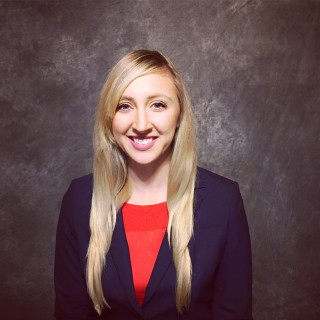I walked into your OR and said, “Do you mind if I watch? I just want to learn,” and you said, “Of course. Always.” Instantly, you became my educator. The thing is, you weren’t being compensated, it wasn’t your job to educate me, but I kept showing up, and you kept teaching. And what you didn’t know was that it meant everything to me. I was struggling so deeply with my personal and professional life, and I had so little I felt excited about. But for several hours in your OR, I felt joy. And it wasn’t because you let me do the whole case (you didn’t, initially) or because you fawned over me (you didn’t, initially). It was because you taught me. You showed me tips and tricks for being more efficient, for rethinking how and why we do things in surgery. You sent me links to surgical videos and I devoured them — because I hungered for knowledge and you had it. We’d walk to lunch and talk about other famous surgeon’s approaches, and you’d disagree with me, and I loved every moment of it. You could’ve made me sit in a corner, never touching the patient and I wouldn’t have minded because your mind was like a day of reading my favorite book; I couldn’t put it down.
I write this following some of the hardest years of my life simply because I want to say thank you. I’ve seen educators burn out, overwhelmed by the workload of teaching. You might wonder if your lectures, your criticism, the extra moments of patience during rounds, whether they matter. You might wonder if the extra hours in the OR spent molding minds is worth it, when you could easily take over the case, finish early, and go see your kids or just rest. You made fun of my left hand: “It’s just laying there! Are you a two-handed surgeon or a one-handed surgeon? Use both of them!” It was like my mind was broken open anew and I was retraining my hands. “Your right hand is a monkey, it’s your left that’s the brains of the operation.” I had no idea.
After a very personal, professional argument, you invited me to your home. You asked me how I was, and you reminded me that I was worthy, in spite of my differences with others, in spite of what others may say. When I suffered a poor outcome at my own hands as a trainee, you called me every day for a week. When I didn’t answer because I didn’t know what to say, you texted me, just to remind me that you were there. We weren’t particularly close, but you knew that didn’t matter, that being there is all that matters. When I told you that I had to have surgery during residency, that I’d be taking time off and shifting more work onto my colleagues, you told me that my family and I will always come first. You told me that everything else is noise. You ran the residency and yet that made no difference in terms of your humanity.
When I called to tell you I was drowning, on the verge of quitting, you told me, “Let’s see what we can do,” and you found a way to save me. You assured me, supported me, reached out to colleagues for me. You defended me. When I told you I wasn’t sure what to do, you walked me through my options. You kept repeating to me that the future would be bright, in spite of my trials and tribulations. “Good things happen to good people,” you told me. When I lost a baby as an ob/gyn resident, you called and told me about your own loss. You cried. I felt like I finally took a breath.
These are not a compilation of teachings from a single teacher but a collection of experiences from many educators across my experience. I have also had my share of abusive and unengaged educators. I have learned that the worst possible educator is one who doesn’t care to teach you at all, one who is not invested in your learning, one who considers you invisible as a trainee. I also realize now that structured learning is a facade. We do such a great deal of learning even after we become attendings, finding humans to foster us as we grow is critical. While the mentorship may be informal, it is irreplaceable.
Sometimes, when I’m sitting in the OR before a case, as a fellow six months shy of graduation, I scroll through my phone. Then I look up to see the medical student in the corner, anxiously waiting for the patient to arrive, for intubation to happen, for ports to be placed, for learning to magically happen. She has been barred from the OR for half a year due to COVID-19. She’s afraid she won’t know what field to pick since electives have been eradicated and now her core rotations are condensed. “Helen,” I say, “tell me about something you’ve loved so far in medicine. Maybe we can apply it in the OR today.”
How have your educators lifted you up during your medical training? Share — and say thank you — in the comments below.
Dr. Muldoon is a minimally invasive gynecologic surgery fellow, a mother to the world’s tallest one year old and a 7-year-old Labrador, a wife to a kind Canadian, and an avid reader and fridge magnet collector. Dr. Muldoon is a 2020–2021 Doximity Op-Med Fellow.
Image by Vector Goddess / Shutterstock






